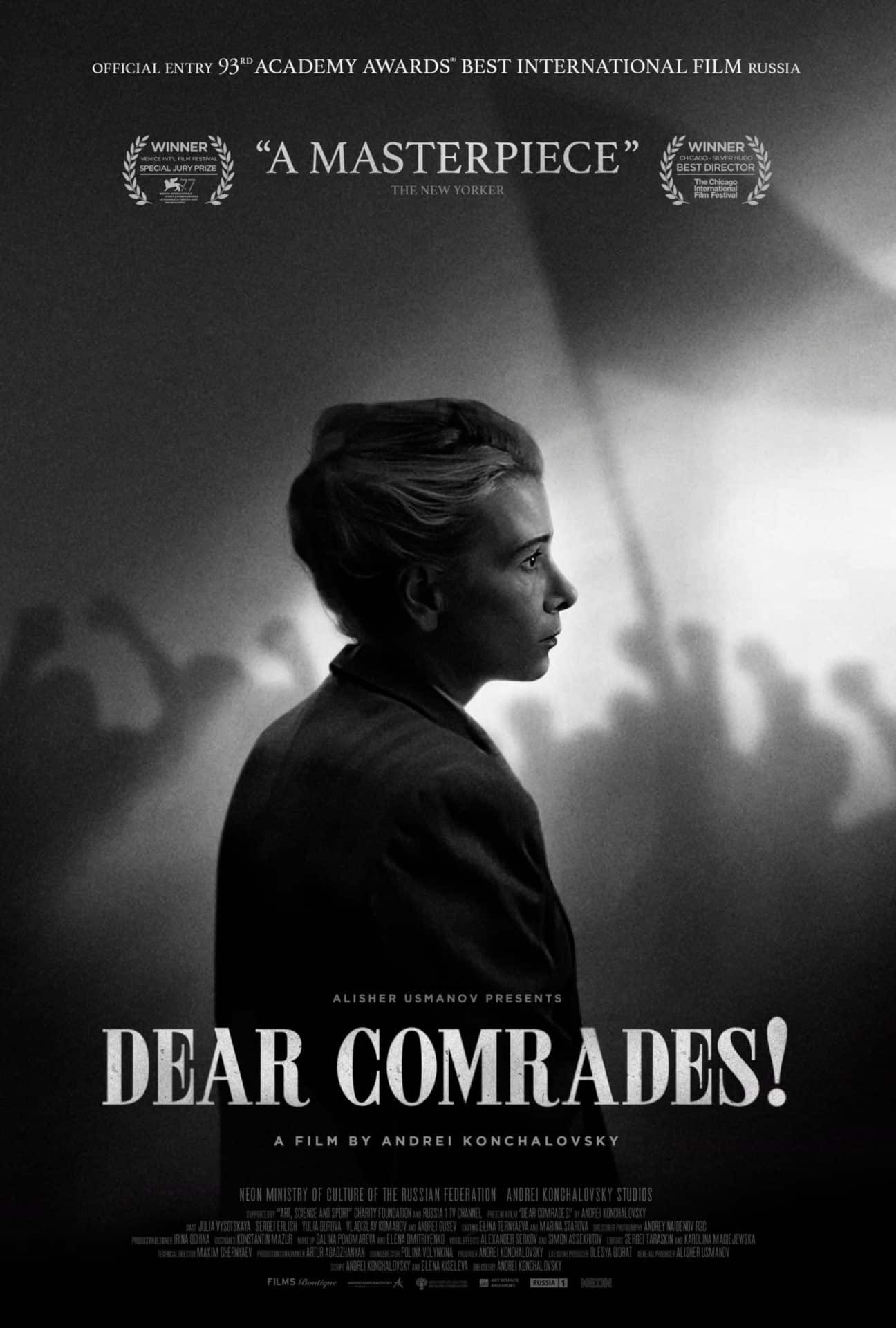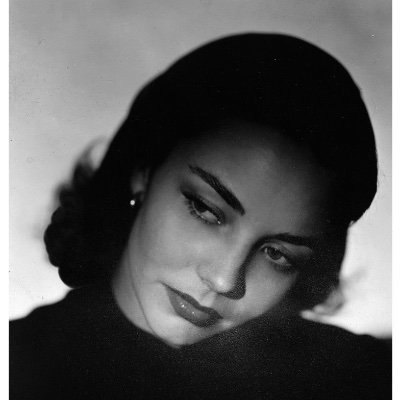
- Starring
- Yuliya Vysotskaya, Vladislav Komarov, Andrey Gusev
- Writers
- Andrey Konchalovskiy, Elena Kiseleva
- Director
- Andrey Konchalovskiy
- Rating
- n/a
- Running Time
- 121 minutes
- Release Date
- February 5th, 2021
Overall Score
Rating Summary
Stepping into the mind of somebody who firmly believed in the principles of the Communist Party of the Society Union. It’s difficult to believe that anybody could willing look away from the horrific tragedies that occurred as a result of Joseph Stalin’s oppressive dictatorship and his desire to wipe out all opposition to his rule. Dear Comrades! seeks to explain the mindset of this sort of person. This is what differentiates it from other somber dramas about atrocities carried out by the leaders of the Soviet Union. It wants to dissect the structures that caused people to fall under the spell of Stalinism, rather than telling a sentimental story about the breakdown of a love affair or the murder of a warmhearted family man. It might not make you cry but it will leave you feeling disturbed by the knowledge that circumstances can turn ordinary people into monsters.
One of those ordinary people is Lyuda (Vysotskaya), a member of the city committee in Novocherkassk in 1962. She firmly believes in Communism and sees it as the saviour of the citizens of the Soviet Union. Her work life is stable and she is thought highly of by her colleagues. At home, she is under a great amount of strain, as she has a troubled relationship with her daughter Svetka (Yuliya Burova). She worries about how quickly her daughter is maturing and is annoyed by the fact that her daughter criticises her for having an affair with a married man. This distracts from her career and she and her colleagues are shocked when the workers at the local electric locomotive plant, go on strike. They have done this because their production quotas have been raised without them receiving an increase in wages. The price of dairy and meat products has also increased and they believe that they must strike in order to be in a position where they can afford the food they need to survive. The committee members scramble to address this strike and the government becomes more and more involved as the situation intensifies. Out of the confusion and shock, comes a drastic decision.
One can’t help but get a sinking feeling in the pit of their stomach during the opening scene. We see two lovers having a conversation about their fears for the future of Russia. This also brought flashbacks to the awfulness of Doctor Zhivago, preparing to be horrified by a pretty film that foregrounded a dull, passionless love affair while using references to the development of the Soviet Union to heighten its sense of self importance. Despising David Lean’s fatuous film adaptation of Boris Pasternak’s novel, its dismissal of any serious discussion of the disappointment of Communism and the suffering of ordinary people is morally repugnant. This is why it took awhile to trust that this film.
It was easier to breathe once Lyuda entered into her day to day routine and viewers could see what her life was like as a paper pusher in this society. The unforgiving harshness of the cinematography removes the sense that these people are living in genteel poverty and adds to the feeling of watching a documentary style reproduction of real events. Cinematographer Andrey Naydenov seems particularly fixated on the spareness of the government buildings and the ease with which individual faces can be lost in crowds. He employs deep focus to illuminate absolutely everything in the governmental office and it causes us to feel a certain revulsion at the sight of bare, undecorated walls and minimalistic interior design. While they have the funds to invest in a few tchotchkes that would brighten up the place but that would not be in line with the philosophy of this society. These buildings are meant to look imposing and unfriendly, in an effort to deter people from protesting or pushing back against orders issued by the government. We aren’t greeted with the faces of all of the individual bureaucrats and we can barely differentiate them when they hurriedly leave the building. It became very clear that Naydenov didn’t intend to sugarcoat anything and this was going to be a bracing, painful experience.
The iconography of Stalin always lingers in the background and the production designers chose to incorporate several images of him, into the Syomina household. His cult of personality was so strong that people could believe in the idealistic visions that he claimed to have and Lyuda finds herself admitting that her blind faith in leadership is tied to trauma from her past. Konchalovsky makes us wait a long time to discover exactly what happened to Lyuda, but he seems more interested in the way that personal tragedies can become irrelevant in the face of the march of time and the indifference of the masses. He achieves this effect through pacing, as you feel as though you can never quite catch your breath in between devastating scenes. He quickly moves past Lyuda’s sorrow in the immediate aftermath of the massacre and cuts to her at a point when she can number herself against the pain that she feels inside. He takes great pains to show us that the majority of bureaucrats remain unmoved and the city is slowly rebuilding around her. Everything else will recover and return to normal but she will be left with irreparable wounds and her suffering will be forgotten.
This is a film that is distinguished by its focus on an unusual viewpoint and the technical mastery that is on display. Some might argue that it is too bleak in its outlook, or not quite wide ranging enough in its scope. Dear Comrades! strikes the right balance between commenting on a larger culture of fear while not spreading itself too thin in terms of its focus on individual characters. This is an ‘eat your vegetables’ movie but it does earn its right to take itself very seriously.
still courtesy of Neon
Follow me on Twitter.
If you liked this, please read our other reviews here and don’t forget to follow us on Twitter or Instagram or like us on Facebook.

I am passionate about screwball comedies from the 1930s and certain actresses from the Golden Age of Hollywood. I’ll aim to review new Netflix releases and write features, so expect a lot of romantic comedies and cult favourites.
Discover more from
Subscribe to get the latest posts sent to your email.
